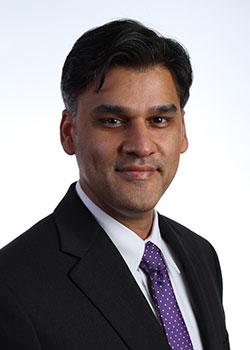Robin Parihar
Assistant Professor, Department of Pediatrics, Section of Hematology-Oncology, Baylor College of Medicine
Research Member, Dan L Duncan Comprehensive Cancer Center, Baylor College of Medicine
Faculty Member, Center for Cell and Gene Therapy, Baylor College of Medicine
Mentored presenters may have participated in these courses
BIOC 310
Student Project Titles List
Understanding the Effect of IL-15 on the Tumor Microenvironment to Enhance Cell-based Therapies for Solid Tumors
IL-21 Increases Suppressive Functions of Myeloid-Derived Suppressor Cells and Inhibitory Macrophages
Research Areas
Dr. Parihar’s research interests center around finding new ways in which to enhance the body’s own immune system to detect and destroy cancer. He has worked in the field of immunology for over a decade and has contributed to numerous translational research projects investigating the role of various immune cells in the control of cancer.
Dr. Parihar's lab, located within the Center for Cell and Gene Therapy, investigates the role of a specific type of immune cell called the natural killer (NK) cell. His research projects aim to enhance NK cell functions in order to target the tumor microenvironment, essentially getting rid of the accessory cells that help a tumor resist standard therapies. He is introducing the enhanced NK cells as therapy for children with advanced cancers. In addition, his lab has established lab models to better understand how the tumor microenvironment suppresses the immune system, in order to develop new approaches to overcome this inhibition and improve immune-based therapies for pediatric cancers.
Dr. Parihar has served as a principle investigator and collaborator on grants examining NK cells as anti-cancer therapy and published extensively on the subject. Besides his interest in immunology and its relation to cancer, Dr. Parihar also places great importance in the role of the physician at the bedside, as an advocate and communicator for patients and their families. Thus, he has always been interested in clinically‑relevant research, with the ultimate goal of translating basic science discoveries made in his lab into novel clinical treatments for children with cancer.

